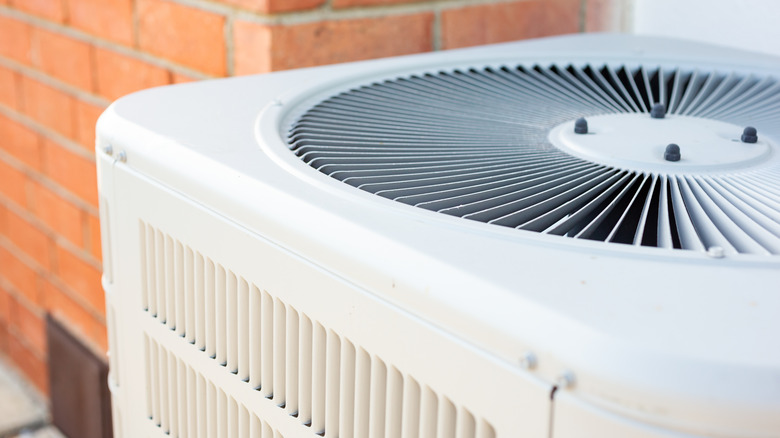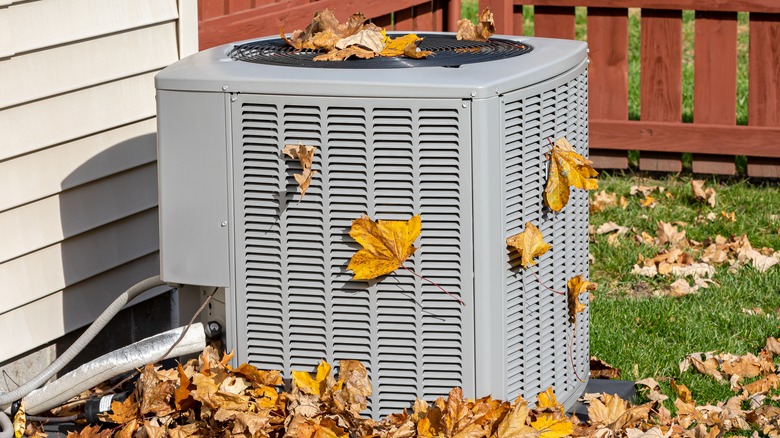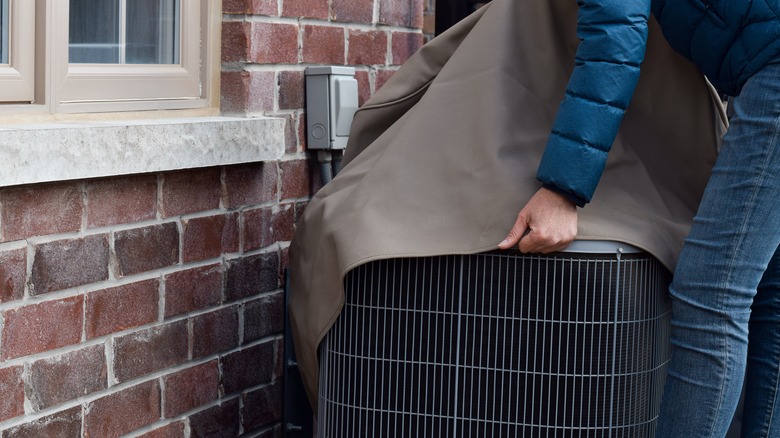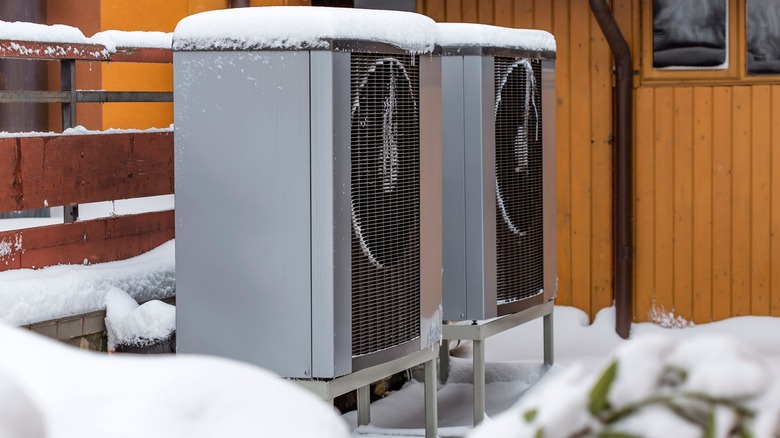How To Care For Your Outdoor A/C Unit In The Winter, According To An Expert
Though the cooler months may not be when you think much about your air conditioner, it's still one of your home's largest and most important systems. It's easy enough to forget about the outdoor A/C unit, especially since it's generally out of sight. The exterior A/C is a large box-like system with a coil that allows hot air to be released from the refrigerant gas that's traveling from inside the home out. It typically has a large fan on it that works to bring the refrigerant temperature back down before it heads back into the home to continue the cooling process, according to Carrier. To function well, each one of these components must be working properly.
Routine maintenance is often necessary both during and after the season to keep the system operating at its best. As explained by Choice Air Care owner Chris Forbus in an exclusive interview with House Digest, there are steps to take during the winter to protect and care for the outdoor A/C unit.
Clean your A/C unit
As the temperature drops for the year each fall, you may flip off the thermostat, knowing that you will not need your A/C unit for a while. The elements work against all types of electrical systems outdoors, including the air conditioner, which means it's best to pay some attention to its maintenance, as explained by Chris Forbus. "Even if the A/C won't be used, it's a good idea to clean the outdoor unit before winter the same way you would do so in the spring/summer."
The ideal scenario is to ensure nothing holds the system back from functioning properly, including anything limiting the fan's function or clogging up the coils. If you haven't yet, take a look at the outdoor A/C to see what's happening around and inside it. Forbus recommends a simple process to do this, sharing, "Use a soft brush to brush away leaves and other debris. Make sure not to damage the fins on the coil, they are fragile, so never use a hard object."
Should you cover your A/C unit?
With the cold temperatures and wind during the winter months, it may seem like an impossible task to keep debris out of such an open system. Chris Forbus offers recommendations to help if you're considering protecting your central air conditioning unit. "If you live in a northern climate and are certain you won't use the A/C until spring, some people like to cover the unit to keep it free of snow, ice, etc." That could certainly help to minimize the amount of maintenance you need to do once the snow starts, but how do you do it? Forbus shares, "You can buy a special made cover for a good fit. You can also use a tarp — just make sure it's secure and won't blow away. Make sure you remind yourself not to turn the A/C on before removing the cover."
Forbus notes that it's different in the South, sharing, "If you live in a southern state, it's easier to leave it uncovered since it's much more likely that a warm day requires the A/C sometime during the winter. Otherwise, there's not much else needed until spring."
Maintain the unit accordingly
Some homes don't have a traditional central A/C system and instead utilize a heat pump that can both heat and cool the home by moving thermal energy using the same basic refrigeration method, as noted by Carrier. Chris Forbus notes this is an important difference since you will use the same system throughout the year. "If you have a heat pump, the outdoor unit must be maintained, just like the summer." He continues, "Keep the area around it free from snow and ice, as well as from shrubs and debris. Don't let snow accumulate during a snowfall, if possible. Use a soft brush to clean the coils, nothing hard."
There are times, especially in cold spells, when keeping the heat pump ice- and snow-free is challenging. "If you have ice on the unit, only chip/break it off if it's on the top of the case. Never try to break ice off the coils, they are easily damaged. If necessary, you can use warm water to try and melt the ice, but don't use boiling hot water," recommends Forbus.



